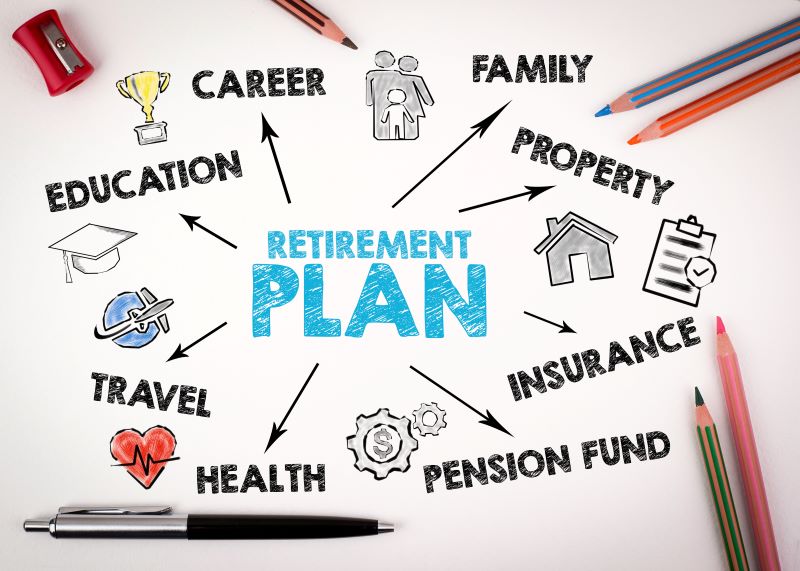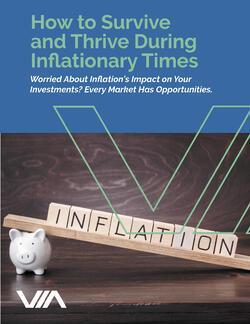

Why Is Retirement Planning in Minneapolis So Important?
As the old saying goes, “A destination without a roadmap is just a destination.” There is another truism that most people spend “more time planning” their next vacation than they spend preparing for their financial futures.
Perhaps this is because road trips are fun, where planning for retirement requires several complicated assumptions that are subject to frequent change. However, both can lead to undesirable destinations—if they aren’t planned adequately.
This article answers these questions and more:
- When should I plan to retire?
- How many assets will I need?
- Which financial risks might impact me?
- How should I invest during my working years?
When Should I Plan To Retire?
One of your most important retirement planning assumptions is the year in which you plan to retire. Additionally, if you are married, you need to know how that date applies to you and your spouse.
A common retirement date selected by numerous couples is age 65. This is because it can coincide with Medicare and Social Security eligibility. However, your expected workforce exit can be either a fixed date or a flexible point in time, based on the achievement of your retirement goals:
- Saving a specific amount of money by a specific date.
- Paying off all debts, such as a home mortgage.
- Building a reserve for unforeseen circumstances.
- Setting up quality healthcare for your retirement years.
- Providing a long-term care solution for later in life.
You may work for a company that has a mandatory retirement age to make room for your successors. Or, you might own a business, so you have more control over when you clock out for good.
How Many Assets Will I Need?
The first step is determining how much money you need to accumulate to produce adequate income for a secure, comfortable retirement. If this is a difficult figure to determine, a retirement planning firm like ViaWealth can assist you in developing a retirement income analysis. That can make finding the right amount easier.
For example, using some round numbers, let’s assume that you are currently earning $200,000 per year today. That will probably increase over time, with raises and/or promotions, to roughly $400,000 per year by the time you plan on retiring.
So, assuming you are debt-free and your children are out of school, take a percentage of that number (such as 70%) to determine your likely income requirements at the beginning of your retirement. In the case of this example, you would need $280,000 of income per year to support your desired lifestyle.
There is another assumption we need to make that involves Security Security: If the current benefit is $25,000, the benefit when you retire in Minneapolis might be $40,000. After deducting that from the $280,000, you would need $240,000 of income from other sources to supplement it. If you use a conservative distribution assumption, such as 4%, you’ll need to accumulate $6 million to fund your retirement.
Which Financial Risks Might Impact Me?

Part of planning for retirement in Minneapolis is recognizing the risks that can negatively impact the achievement of your goals and then factoring them into your preparation. What if you do not achieve the assumed savings amounts determining your contributions to your company’s retirement plan, IRAs, and personal savings accounts?
If you assume a 10% rate of return for the performance of your retirement assets, what if you only achieve 7%? At the same time, what if you assume a 3% inflation rate and the actual rate is much higher? Inflation erodes the purchasing power of your assets.
These are the types of questions that a CERTIFIED FINANCIAL PLANNER™ can help you answer—and help build your financial plan to address.
How Should I Invest During My Working Years?
The four principal asset classes for investing for retirement include:
- Common stocks
- Bonds
- Cash equivalents (CDs, T-bills, money market)
- Alternatives (real estate, precious metals)
Generally speaking, younger people who are accumulating assets for retirement can afford to take more risk. This is because they have more time to recover from bad years in the stock market. Meanwhile, on the other end of the spectrum, people often become more conservative, taking less risk as they age toward their retirement dates.
They also may be faced with a sort of planning conundrum: On the one hand, the risk tolerance of retirees in Minneapolis could be much lower (because they are no longer adding savings to their retirement accounts). However, one or both spouses have a reasonable probability of living well into their 90’s.
This creates a risk of possibly running out of money later in life if their asset allocations are too conservative too early into their retirement.
Seven Reasons Why You Want a Lasting Partnership With Your Private Wealth Advisor.
Should I Update My Retirement Plan Often?
You should update your retirement plan at least once per year. That is a bare minimum, though, since your retirement plans, circumstances, or goals may change.
For example, if you:
- Receive a major promotion or raise
- Decide to change jobs or sell your business
- Inherit a substantial amount of money
- Experience a catastrophic illness
- Win the lottery
- Exercise a valuable stock option
- Sell a real estate investment
- Downsize for retirement
How Do I Monitor My Retirement Plan & Results?

You should be receiving monthly reports that document your results, saving rates, transactions, dividends/interest, and other financial results. These allow you to monitor the assumptions that drive the achievement of your retirement planning goals on a quarterly basis.
It may be necessary from time to time to update your assumptions, based on recent events, and then recalculate your results to determine the impact. This is why your retirement planning should be updated annually (and at times, more often).
For example, when there is an addition to your family, a child starts college, or you buy a second home, that has an impact that you need to account for. Likewise, if you are awarded company stock, or you receive an offer you can’t refuse for your family business, your plan should be updated.
Your retirement plan is much more—and typically, more complex than—a straight line from where you are now to where you want to go. Constantly monitoring your progress and making changes as necessary goes with the territory. You could try to do this on your own.
However, the fiduciary team at ViaWealth can help you make the right choices, proactively, without devoting as much of your own (sometimes scarce) time and effort. Contact us to learn more.
ViaWealth, LLC is a Registered Investment Adviser. Information in this article is for educational purposes only and is not intended to be an offer or solicitation for the sale or purchase of any specific securities or other types of investments. Investing in the securities markets involve risk of principal and unless otherwise stated, returns are not guaranteed. Be sure to consult with a qualified financial adviser and/or tax professional before making any financial decisions. Past performance is not indicative of future performance.


